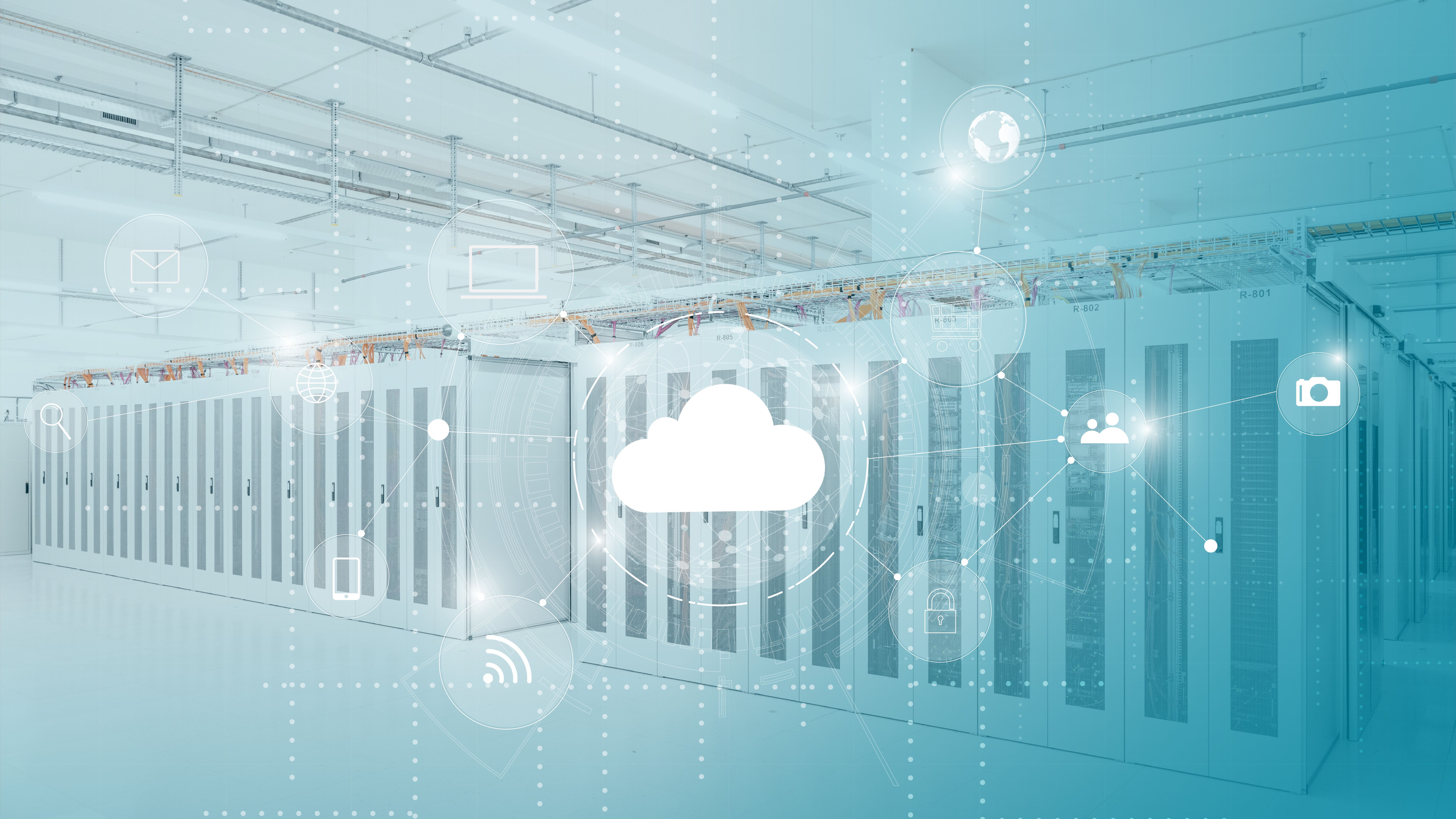
Cloud - more than just an IT project
The true potential of cloud transformation is still far from being fully exploited. People often forget that outsourcing IT is a lot more complex than a normal IT project: a cloud strategy with a market perspective is required. In the digital age, the use of data – regarded as gold in today’s society – opens up a whole host of new opportunities in the market for companies. Customer-centric and data-driven corporate management is increasingly forming part of the corporate strategy. Customer centricity, sustainability and transformation are the three key areas that ensure the long-term success of a company and also directly influence its cloud strategy.
First, let’s look at the vast amount of unrecognized potential that lies dormant in today’s huge volumes of data.
Roger Süess, CEO Green: «Thanks to data, companies can better tailor their offerings to market requirements, successfully develop their product range, and as a result target their customers in a more precise manner.» |
Marketing and product managers are already using market and customer data in addition to sophisticated tools based on artificial intelligence (AI). With astonishing results: for example, by exploiting AI-driven data analytics, companies can get an idea of their customers’ needs even before they make an inquiry. In fact, some online shops seem able to detect that a customer is pregnant based on their orders before that person even knows themselves. The needs of the IT cloud strategy are therefore primarily and actively shaped by market requirements.
Hybrid, private or public? We would be happy to show you ways to a smart cloud future. |
Flexible and cost-effective IT as a valuable asset
Knowing exactly what customers want and need represents a substantial information advantage, from which innovations can be derived and new business models developed. These business ideas are tailored to the target group and can enable quick access to the market. Additional investments are usually required in order to put these ideas into practice. This makes it all the more crucial to ensure that ongoing IT costs are kept in check at the same time.
Depending on the particular service model used by companies, potential savings may be made in a range of areas following a cloud migration. “One way we can reduce costs is by rethinking the service model and by acquiring and maintaining the IT infrastructure,” explains Green CEO Roger Süess. Cloud transformation also enables higher efficiency, as it produces economies of scale and greater flexibility. “This means that companies can return to their core competencies and drive innovation forward – and do so much faster than ever before,” emphasizes Süess.
You want more efficiency and freedom? |
Sustainable and secure in the cloud
A mature cloud strategy takes security and sustainability aspects into account. After all, data is now rightly considered a valuable asset that needs to be protected. It must be shielded from prying eyes and measures must be taken to ensure that a company’s intellectual property and expertise do not fall into the wrong hands. If a company wants to put the necessary barriers and safety standards in place by itself, it will need to invest heavily in its IT infrastructure and the corresponding specialist personnel. Private or hybrid cloud approaches in modern data centers offer a simpler alternative solution.
Small and medium-sized companies in particular benefit from the existing high security standards that a data center provider must offer its major customers. “At the moment, IT managers are anxious about the prospect of potential power cuts and shortages, as they fear that their servers will fail if they are not connected to a suitable emergency power generator,” says Süess. The situation is different for large data centers, which have to keep customers such as hospitals and banks operating even in the event of power outages. When developing their IT strategy, decision-makers should therefore give sufficient weight to the topic of data security.
You're looking for sustainable and secure housing? |
Companies benefit from investments that cloud providers have already made
If a company decides to outsource its IT infrastructure and use new IT services from the cloud, this will have security implications, as well as making a positive impact on its sustainability strategy. This latter issue is becoming an increasingly important success factor for companies. As with security, they stand to benefit from investments already made by cloud providers when it comes to scrutinizing the entire supply chain as part of a corporate ESG analysis.
A modern, energy-efficient data center that puts the waste heat from its servers into a heating network outperforms a company with its own IT infrastructure whose heat goes unused in the basement. In the case of Green, for example, in addition to waste heat recovery, all servers are enclosed and cooling is only triggered in areas where absolutely necessary, with temperatures being adjusted precisely to the degree. The ambient air is also used for cooling. In addition, 100% of the company’s own energy requirements for running the data center are covered by renewable energies – including the company’s own photovoltaic systems. Aspects such as the design and shell of the building, and the choice of materials, equipment and technologies are also precisely coordinated to achieve the highest possible energy efficiency. In turn, it is the customers who ultimately reap the benefits, taking a big step forward in terms of sustainability and also reducing costs.
Do you want a sustainable solution for your data? |
Shortage of skilled workers is an incalculable risk
At the end of the day, the cloud strategy also affects personnel planning to no small degree. Switzerland alone expects to suffer a skills shortage in the IT industry to the tune of 40,000 specialists by 2030. At a global level, this figure stands at approximately 4.3 million IT workers. This represents an incalculable yet very high risk for companies wishing to maintain the entire infrastructure in-house. Focusing on key talent and making the most of cost-effective and innovative cloud and infrastructure services are now crucial to a company’s success. Nevertheless, those planning on outsourcing their IT to the cloud still face some major uncertainties – affecting not only IT managers, but the entire workforce. These concerns must also be taken into account when drawing up a rigorous cloud strategy.
Marketing and innovation, security and costs, sustainability and personnel – the cloud strategy leaves its mark on the entire company and is a mammoth undertaking. The speed and scope of implementation and decisions regarding whether to use a public, hybrid or private cloud are ultimately dictated by the needs of the individual company. One thing is certain: cloud migration can be well-planned and implemented professionally in stages – if necessary, with the active support of a specialist service provider and its partners in the relevant ecosystem.
![[Translate to Englisch:] Portraitbild: Roger Süess, CEO Green](/fileadmin/_processed_/e/c/csm_Green_Roger_Sueess_Bild_Web_cc9616e34a.jpg)
How do companies approach transformation in the organization?
Roger Süess, CEO Green explains in a short interview what is important.
Why do cloud strategies still cause uncertainty for many workers?
Roger Süess: Cloud migration usually results in major changes within a company. As a rule, we humans don’t really like change that much: it triggers anxiety. For example, outsourcing applications to the cloud often leads to completely new ways of working. Sometimes, however, these uncertainties are simply based on prejudices and myths. There is often an element of hostility toward topics such as data protection and security in particular, but fears can generally be assuaged using in-depth analyses or success stories. That’s why it’s hugely important to involve employees in the digital transformation and make the change happen with the appropriate communication measures.
How can we change the mindset of our employees?
Employees must be actively involved in the process. Sustainable transformation requires that employees commit to practicing the principles of entrepreneurship, trust and individual responsibility. Instead of bombarding staff with a whole host of processes and rules, the aim is to create room for development and trust, to delegate and require responsibility, and to empower employees. If the end result is active participants who help shape these processes, everyone’s a winner: the company and employees alike.
Other topics worth reading about the cloud and data center

Journey to the Cloud
Smart, hybrid and tailored to your needs, we support you on the Journey to the Cloud.
![Datacenter mit Colocation und Cage Zone [Translate to Englisch:] Themenbild: Datacenter Colo-Zone](/fileadmin/_processed_/f/5/csm_Datacenter_Cage_02_273b3c2b03.jpg)
Data Center Outsourcing
Replacing your own server rooms with sustainable data centers is an investment in the future.

Best-in-Class Data Center
Sustainable from the architecture to the cooling concept to the use of waste heat. This is our new Metro Campus Zurich.
